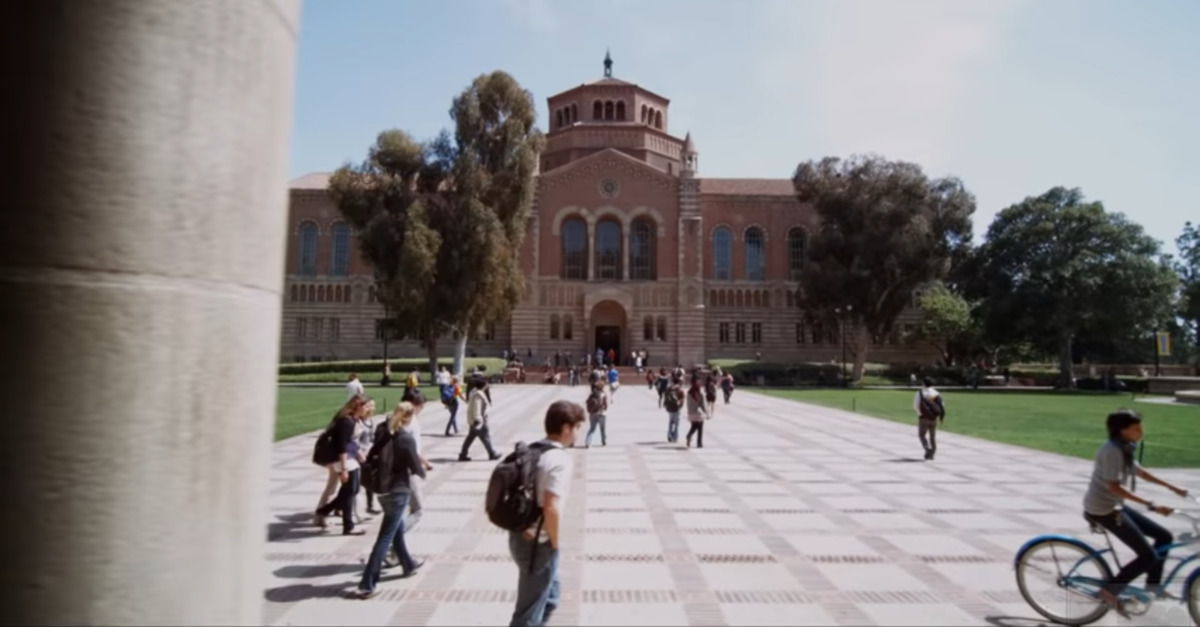
Former athletics officials charged in the ongoing college admissions scandal have asked a judge to throw out the federal indictments against them based on the legal theory that accepting alleged bribes wasn’t really a crime at all.
According to The Boston Herald, onetime UCLA men’s soccer coach Jorge Salcedo is arguing against the basic idea that his alleged conduct harmed his former employer monetarily whatsoever.
“UCLA was barred from accepting ‘money’ in connection with any admissions decision,” a motion filed by Salcedo’s legal team late last week notes. “As a result, Mr. Salcedo could not have engaged in a scheme to defraud UCLA of ‘money’ because UCLA’s governing body…prohibited the University from basing any admissions on financial considerations.”
Salcedo was originally charged with racketeering in March of this year when the first indictments were filed in “Operation: Varsity Blues.” In late October, a susperseding indictment added additional charges of fraud and bribery to Salcedo’s legal woes.
Overall, Salcedo has been charged with one count each of the following: (1) conspiracy to commit racketeering; (2) conspiracy to commit mail and wire fraud and honest services mail and wire fraud; (3) conspiracy to commit federal programs bribery; (4) aiding and abetting the commission of wire fraud and honest services wire fraud; and (5) aiding and abetting mail fraud and honest services mail fraud.
As Law&Crime previously reported, Salcedo is accused of furthering the alleged conspiracy to secure college placements for the children of the wealthy by facilitating the fake college athlete profile scam. Salcedo was originally put on leave but later resigned amidst the controversy. At the top of the alleged conspiracy is William “Rick” Singer and his charity organization “The Key Worldwide Foundation.” Singer allegedly amassed $25 million in bribes from such parents over thee course of eight years beginning in 2011.
Salcedo is alleged to have accepted a $100,000 kickback from Singer’s so-called “sham charity” in exchange for accepting a fake soccer profile allegedly created by concerned mother Xiaoning Sui in order to have her son attend college at the elite school. Authorities allege that Sui and Singer discussed her son’s fake soccer profile during a phone call in August 2018 and that Sui’s son was “guaranteed” admission to the prestigious southern California university if a $400,000 bribe was paid.
Prosecutors allege that Sui shared her son’s transcript and photographs of him playing tennis with Singer. After that, Laura Janke, a former assistant women’s soccer coach at USC, allegedly engineered a fake soccer profile for Sui’s son, which was then allegedly signed off on by Salcedo. In November 2018, just days after the $100,000 payment was made to Singer’s charity, Sui’s son, who apparently doesn’t play soccer, admitted to UCLA as a soccer recruit.
Salcedo’s December 20 motion doesn’t go deep into–or even take issue with–his receipt of the alleged kickback payment but instead disputes the basic foundations of the government’s case against him.
The court filing notes:
The Superseding Indictment charges Mr. Salcedo with committing mail and wire fraud against the UCLA, which require Mr. Salcedo to have engaged in a scheme to defraud UCLA of “money” or “property.” To the extent that those charges are based on allegations that Mr. Salcedo engaged in a scheme to defraud UCLA of “money,” they must be dismissed. The Superseding Indictment accuses Mr. Salcedo of receiving two payments of $100,000 transmitted from Key Worldwide Foundation accounts by Rick Singer in connection with the admission of two students to UCLA. However, by allegedly receiving these payments Mr. Salcedo did not, and could not, legally deprive UCLA of “money.” The University of California Board of Regents (UC Regents), the governing body of California public universities, including UCLA, has a longstanding policy prohibiting California public universities from accepting money in connection with student admissions decisions.
Salcedo’s legal them then goes on to cite liberally from a UC Regents Policy which purports to bar the payment of money to secure a favorable admissions decision.
“[Admissions criteria] include an applicant’s academic achievement, special talents, and life experience,” the university policy notes. “Admissions motivated by concern for financial, political, or other such benefit to the University do not have a place in the admissions process.”
Essentially, Salcedo is arguing that if he did receive the alleged kickback payment in question, the government can’t claim he deprived UCLA of anything because UCLA itself doesn’t accept such payments in order to secure a spot for incoming students.
The theory is unwound again in slightly different form when making the case that Salcedo (and others) didn’t owe a fiduciary duty to UCLA. In essence, this permutation of the argument says that because of their positions as employees of the university and because Singer was not affiliated with the university at all, the defendants didn’t deprive UCLA of those alleged kickbacks–since, of course, UCLA officially doesn’t take kickbacks anyway.
“Here, Mr. Salcedo was the head coach for UCLA men’s soccer,” the filing continues. “There are no allegations that Mr. Salcedo was entrusted with control and decision-making power over important and valuable assets and staff of UCLA. As such, Mr. Salcedo did not owe a fiduciary obligation to UCLA under California law. Moreover, there is no allegation that Richard Singer owed any fiduciary duty. In the absence of any breach of fiduciary duty, the honest services counts must fail.”
The omnibus motion also contained similar arguments in favor of various other defendants in the case as well–including former University of Southern California athletics administrator Donna Heinel.
Read the full motion below:
Memo in Favor of Motion to Dismiss Counts in Varsity Blues Case by Law&Crime on Scribd
[Image via UCLA/YouTube screengrab]